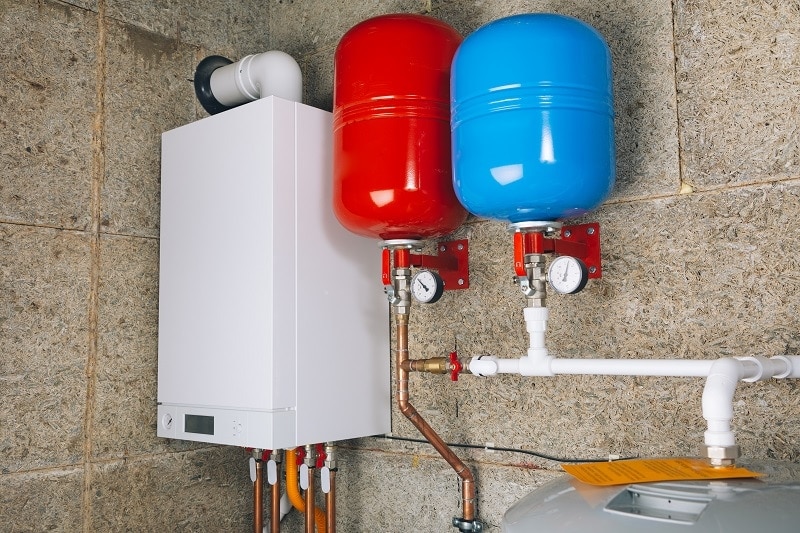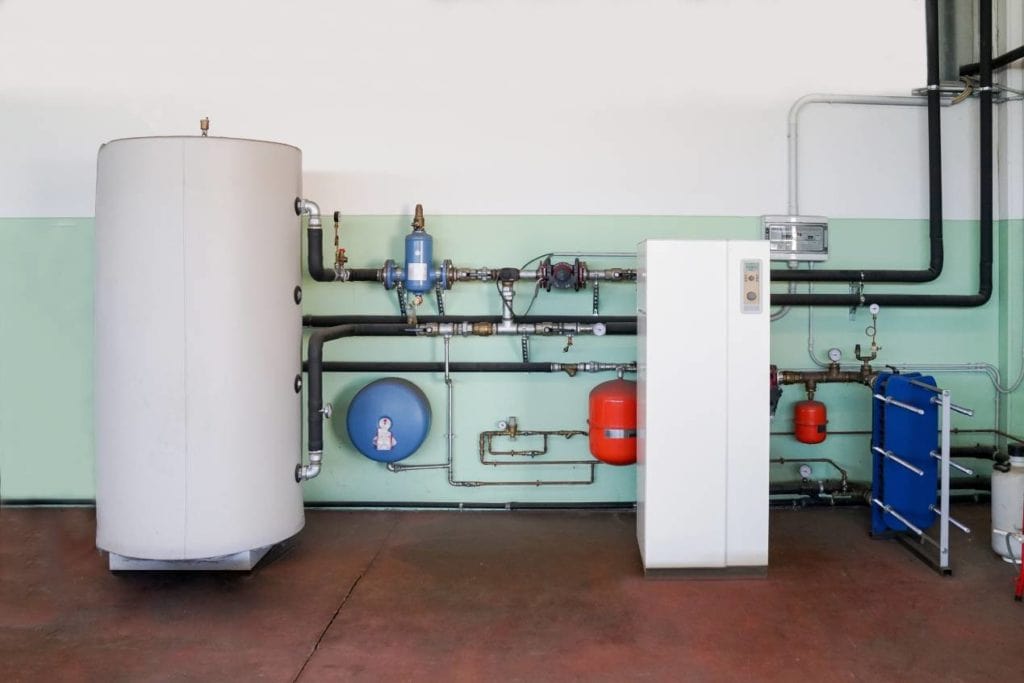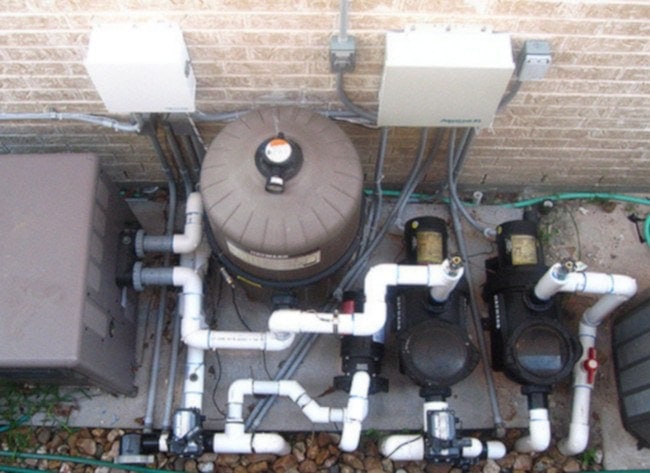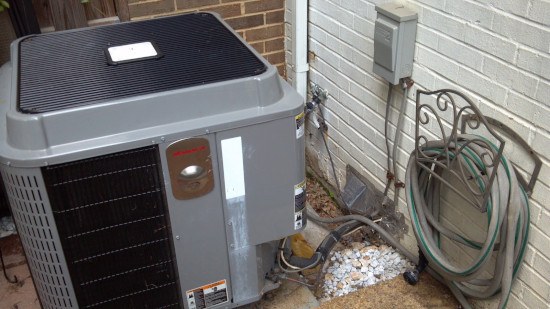What is a Heat Pump Dryer? Pros, Cons, & FAQ
-
Shea Cummings
- Last updated:

Once upon a time, clothing was simply hung outside on a clothesline to dry, and the wind was the dryer. Fast forward to the discovery of electricity and then the invention of the electric dryer—life got a whole lot more convenient!
Then we kept improving and creating new technologies to use energy differently and more efficiently. Heat pumps are a much more efficient way of heating and cooling a house. And heat pump dryers are a much more efficient way to dry your clothes.
How Does a Heat Pump Dryer Work?
To understand how a heat pump dryer works, we must first understand the way an electric dryer functions. In almost all electric dryers, a heating element heats the air. As the clothes tumble, the hot, moist air is vented outside the house. Eventually, you are left with dry clothes.
A heat pump dryer is a closed system; there is no ventilation outside. As the dryer tumbles the clothes around, it pumps the hot, moist air through an evaporator. This is a similar process to heating and cooling a house.
Instead of removing the heat, the refrigerant in the evaporator removes the moisture and allows most of the heat to remain. The hot, dry air is then pumped back through the dryer. When it has removed all the moisture, the cycle is finished, and your clothes are dry.
Even though it doesn’t require ventilation like an electric dryer, a heat pump dryer still needs to drain the moisture it collects. Sometimes this can be routed to drain directly outside. Other models contain a bin that collects the water that is dumped when full.
How Energy-Efficient is a Heat Pump Dryer?
According to ENERGY STAR, a heat pump dryer uses at least 28% less energy than an electric dryer. That’s pretty much the minimum. In reality, a high-quality heat pump dryer can use up to 40% or even 50% less energy than the average dryer.
In addition to the increased efficiency, they don’t require all the ventilation. So not only are you saving money over the life of the dryer, but you’re saving money on the installation and maintenance of a ventilation system.
The flip side to energy efficiency is the fact that the air doesn’t get as hot in a heat pump dryer. So, cycles can take twice as long or longer than an electric dryer. Even with a longer cycle, they are still more efficient, though. Cooler air is better for drying most clothes anyways.
Where Can You Install a Heat Pump Dryer?
The nice thing about a heat pump dryer is that it can be placed almost anywhere. They don’t need any ventilation or ducting, so they aren’t limited in that way. As long as you have approximately a few square meters of space, it’ll fit.
In some instances, you can even place the dryer on top of a front-load washer. Ideally, they should be the same brand to get a good fit. If you do stack them, use some kind of kit to ensure the dryer doesn’t move and fall off.
Cost of Heat Pump Dryer vs. Traditional Tumble Dryer
The cost of running a heat pump dryer over time is a no-brainer compared to a traditional dryer. But what about the cost of installing one? Even without the cost of installing any venting or ductwork, you can expect a heat pump dryer to run you several hundred dollars to over a thousand more than an electric tumble dryer.
Given their lifespan, this isn’t unreasonable. However, if you’re not using it often enough to reap the savings benefits, it’s a big expense that may be hard to justify.
Advantages of Heat Pump Dryers
There are a lot of advantages to switching to a heat pump dryer that will save you money and be better for the environment (and your clothes).
- No ventilation is needed.
- Up to 50% less energy is used compared to a traditional tumble dryer.
- No extreme heat is better on your clothes.
- You can expect them to last upwards of 20 years compared to an average electric dryer’s 10–13 year life.
- They may save you money in the long run, but a heat pump dryer is quite expensive initially—even without venting installation.
- You won’t like how slow a heat pump dries clothes compared to an electric or gas dryer if you’re looking for speed.
- The room’s ambient temperature affects how efficiently a heat pump dryer performs its job.
Frequently Asked Questions (FAQ)
Do heat pump dryers work in cold rooms?
It’s normal for the drum not to feel hot to the touch with a heat pump dryer because it doesn’t produce the same heat as a traditional tumble dryer. Because of this, if a room falls below around 44° F (7° C), the dryer will not function properly. So, unheated garages or some basements are not ideal places for the dryer—especially during the winter.

Can you wall-mount a heat pump dryer?
Most heat pump dryers are much heavier than a traditional dryer. There is not a safe way to wall-mount them. However, sometimes you can stack them on top of a front-load washer if you’re looking for space savings.
Does a heat pump dryer need a water line?
Unlike some dryers that need a cold water line to perform certain functions, there is no need to connect a heat pump dryer to water. The moisture they extract through their process is stored in a holding tank to be emptied when full or after each load.
Are heat pump dryers quiet?
A heat pump dryer isn’t the best bet if quietness is a major consideration in your dryer purchase. This isn’t to say they are incredibly loud, but most of them are louder than the average electric or gas dryer. The main contributing factor to this is the noise from the compressor that powers the evaporator. Also, you’ll quite often hear the pump that gets rid of the water.
Closing Thoughts
If you’re doing laundry every day, investing in a heat pump dryer makes good sense. However, if you’re only using the dryer a couple of times a week, a heat pump dryer may not be the most cost-effective solution. You may be better off buying an inexpensive electric dryer—especially if your home already has the venting as many do.
Another thing to pushes you towards a heat pump dryer is the fact that they are much more eco-friendly. So, if you’re making the lifestyle push towards greener living, you may want to consider the heat pump dryer.
- https://www.energystar.gov/products/heat_pump_dryer#:~:text=WHAT%20IS%20A%20HEAT%20PUMP,once%20the%20moisture%20is%20removed.
- https://www.choice.com.au/home-and-living/laundry-and-cleaning/dryers/articles/what-is-a-heat-pump-dryer
- https://www.homeserve.com/uk/living/plumbing-and-drainage/what-is-a-heat-pump-tumble-dryer/
Featured Image Credit: nikkytok, Shutterstock
Contents


